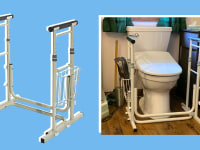6 AI innovations for those aging in place
Robots are changing the future of aging in place.
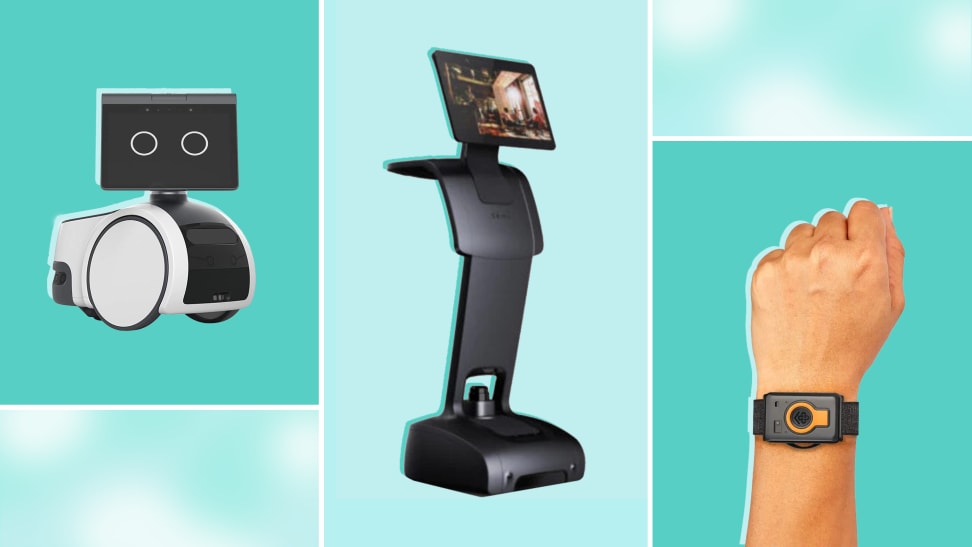 Credit:
Reviewed / Amazon / CarePredict / Temi Robot
Credit:
Reviewed / Amazon / CarePredict / Temi Robot
Products are chosen independently by our editors. Purchases made through our links may earn us a commission.
In 2017, the U.S. Surgeon General declared social isolation a “global epidemic,” and that problem has only grown worse during the coronavirus pandemic. The consequences are even worse for seniors, especially those living independently. The AARP Public Policy Institute estimates that social isolation drives $6.7 billion in additional associated Medicare spending per year.
But AI and technology offer hope: The New York Office for the Aging recently partnered with ElliQ by Intuition Robotics to bring empathetic care companions into the homes of hundreds of seniors aging in place across the state. The robots proactively engage in conversation first, assist with wellness goals, and build relationships with users through advanced artificial intelligence (AI).
New York isn’t alone in realizing the value of AI when it comes to helping older generations. At Inspīr, a new, technology-focused brand from Maplewood Senior Living, Chief Clinical Officer Brian Geyser shared insights about how AI-infused products can enhance independence, promote social engagement and connectedness, and improve safety and security. Here are his suggestions when it comes to AI and other innovations:
1. Amazon Astro
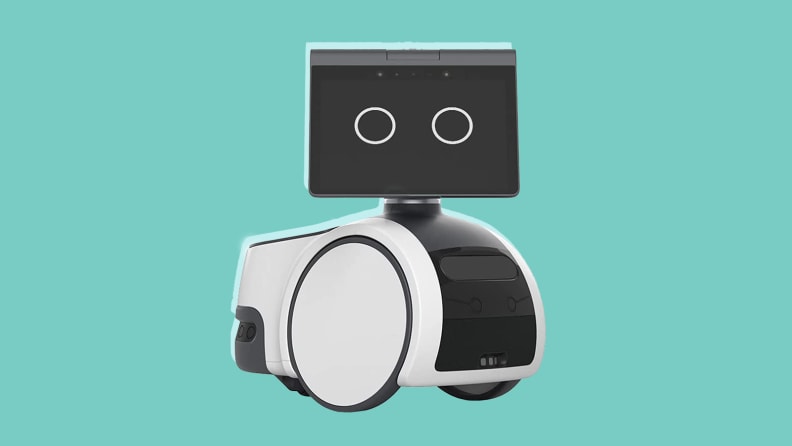
Amazon Astro is a watchful guardian designed to keep its owners safe.
While specific use cases remain to be determined, Geyser thinks some opportunities may emerge with the Amazon Astro. The periscope that pops up from the Astro’s back can be useful for remote caregivers or family and friends who need extra visibility into a senior’s home to check up. At-night devices like Astro could keep a watchful eye on those aging in place, or even help them via a built-in Echo Show display or similar product.
2. Hero Pill Dispenser
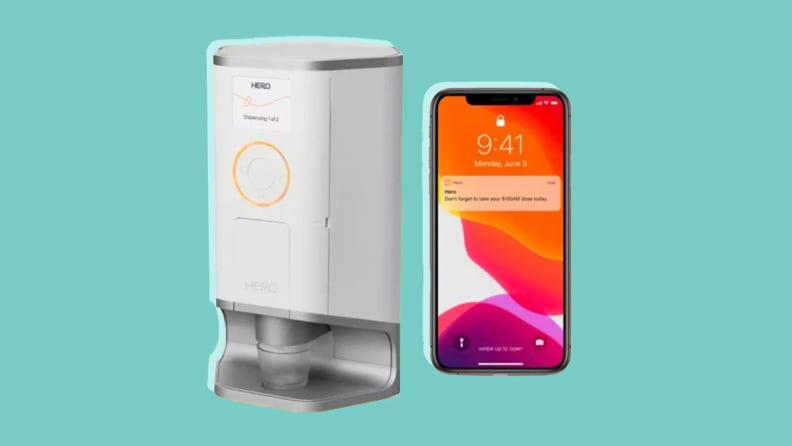
Keeping track of your pills has never been easier with the Hero Pill Dispenser.
The Hero Pill Dispenser is smart enough to make med taking an almost a mindless task. This handy robot has trays you can fill with different meds, and they are stored in a child-safe locking compartment. The Hero app allows you to program which meds are in each tray and set up fairly complex regimens for them. Hero can then light up and chime to remind you of an upcoming dose, and it will continue to remind for a length of time you set in the app. Caregivers can also see Hero activity (regimen compliance, schedule, PIN access, etc.) on their own app, so it’s easy to keep track and step in to help when needed. In our testing, Hero didn’t fare well with small pills (like birth control or low-dose aspirin), but otherwise we love it. In fact, our accessibility editor, Sarah Kovac, uses one of these to keep track of her own medications and even those of her pets.
3. ElliQ
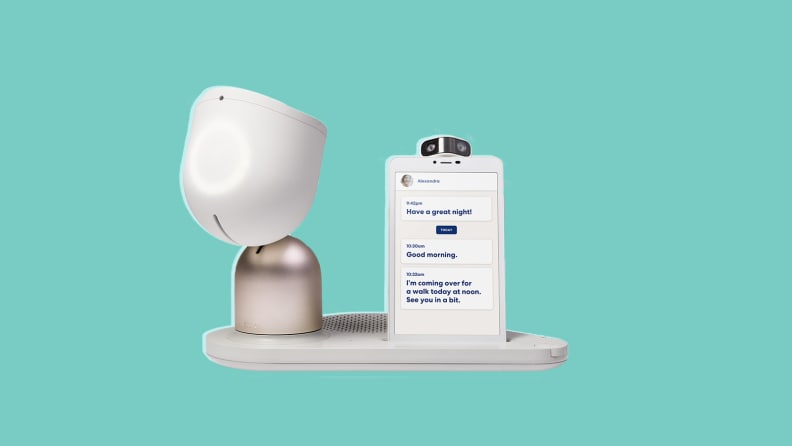
The ElliQ personal assistant will make you feel accompanied at all times.
“The ElliQ is another great example of a personal care robot that anyone can order and set up very easily. And it sits there in your living room and interacts with you as you go about your day,” says Geyser. ElliQ engages in small talk, tells jokes, features games that sharpen cognitive skills, and includes Bold video workout sessions.
Geyser appreciates functionalities like natural interaction, because there’s no need to remember specifically worded commands. ElliQ also enables independence by setting reminders for appointments and medications and assists with arranging transportation through ride-share platforms.
4. Current Health
“This is very easy to set up and something that an older adult can theoretically order and manage on their own,” says Geyser. “You just take it out of the box and you’ve got a remote patient monitoring system there that's helping to monitor vital signs and health data, behavior changes, and things like that, which is then transmitted to that senior’s primary care doctor.”
5. CarePredict@Home
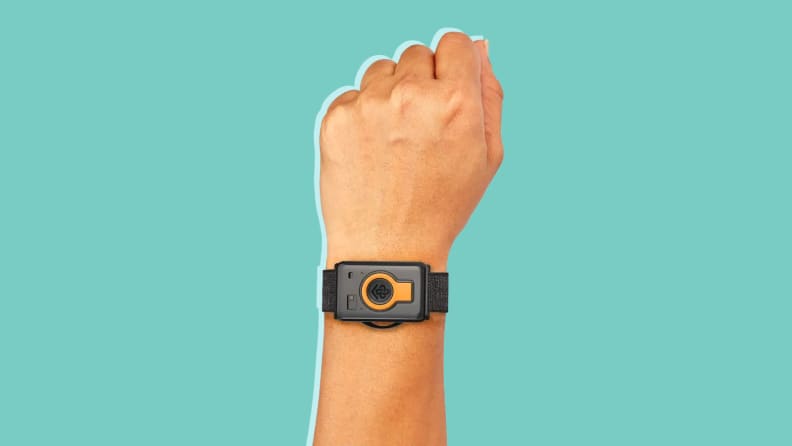
CarePredict@Home is very useful for keeping track of the elderly's physical activities.
CarePredict@Home is a bracelet that detects “all kinds of different biometrics and health metrics,” says Geyser. The device uses AI to learn and follow seniors’ daily habits like walking, sleeping, or eating. Loved ones have access to data detecting falls, or insights into whether seniors have visited the bathroom or kitchen, for instance. Those data are synthesized to provide predictive markers about UTIs or dehydration.
6. Temi Robot V3
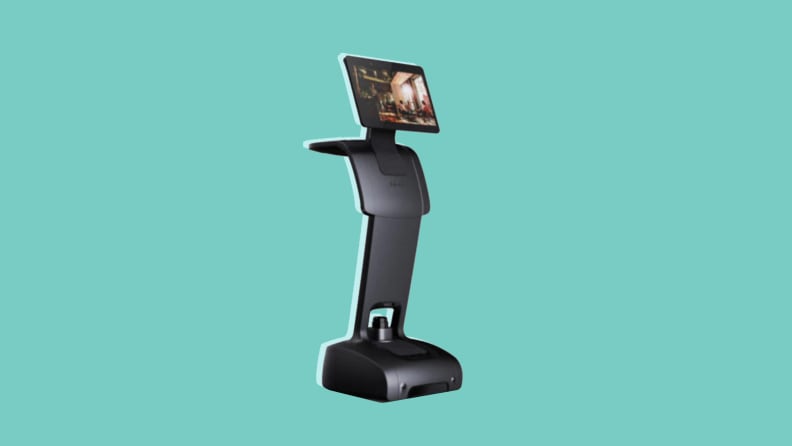
Temi is your own life-sized personal assistant robot.
Inspīr has myriad uses for commercial-grade, AI-powered Temi robots, which, starting at $3,999 are a bit less consumer-friendly for that reason alone. The Temi robots interact with residents and allow them to have video chats with family members, doctors, and internal staff. The robots also deliver packages to residents’ rooms, for instance.
“We're using the Temi robots in a variety of different interesting ways. We're experimenting with them to do things like virtual nurse and virtual concierge,” explains Geyser. “So you'll have a robot kind of roaming the hallways... and when a resident happens upon the robot, the robot will engage with them and say, ‘Hello. Is there anything that I can do for you?’ If a resident says, ‘I need a nurse,’ a nurse will come right up on the screen. And they're doing a FaceTime together, right on the robot.”
The product experts at Reviewed have all your shopping needs covered. Follow Reviewed on Facebook, Twitter, Instagram, TikTok, or Flipboard for the latest deals, product reviews, and more.
Prices were accurate at the time this article was published but may change over time.

